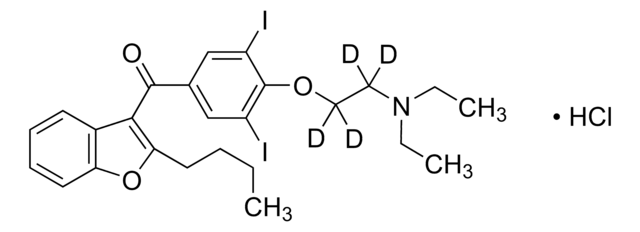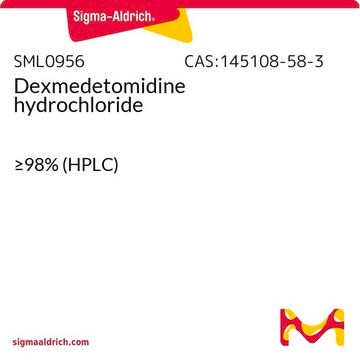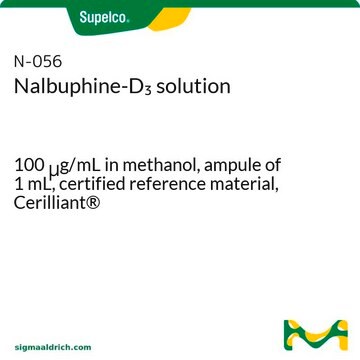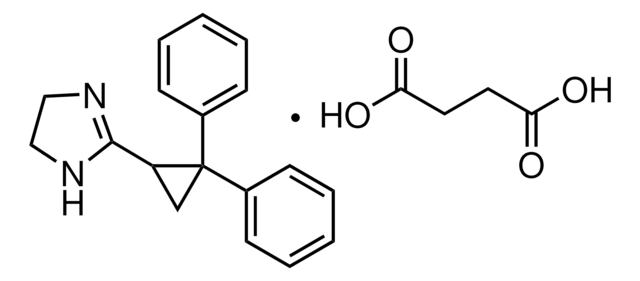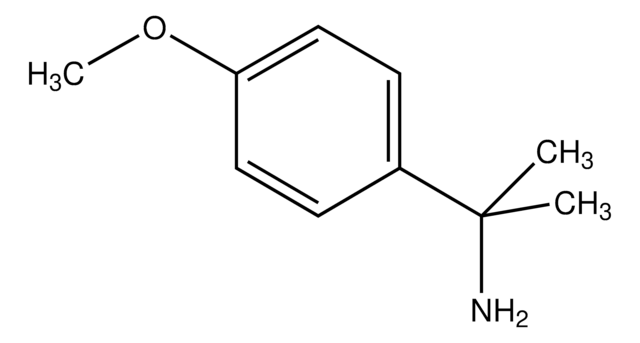P0026
Pilsicainide hydrochloride
≥98% (HPLC)
Synonym(s):
N-(2,6-Dimethylphenyl)tetrahydro-1H-pyrrolizine-7a(5H)-acetamide hydrochloride, Pilzicainide hydrochloride, SUN 1165
About This Item
Recommended Products
Quality Level
Assay
≥98% (HPLC)
form
powder
storage condition
desiccated
color
white to beige
solubility
deionized water: >5 mg/mL
storage temp.
room temp
SMILES string
Cl.Cc1cccc(C)c1NC(=O)CC23CCCN2CCC3
InChI
1S/C17H24N2O.ClH/c1-13-6-3-7-14(2)16(13)18-15(20)12-17-8-4-10-19(17)11-5-9-17;/h3,6-7H,4-5,8-12H2,1-2H3,(H,18,20);1H
InChI key
NZOSVDHCTCLGEB-UHFFFAOYSA-N
Application
- to study its effects on electrophysiological parameters in guinea pig pulmonary vein preparation
- to study its effects on Ca2+ release and arrhythmic events in Andersen-Tawil syndrome induced pluripotent stem cells (ATS-iPSC)-derived cardiomyocytes
- to study its electrophysiological effects on the guinea pig atrium
Biochem/physiol Actions
Features and Benefits
Signal Word
Danger
Hazard Statements
Precautionary Statements
Hazard Classifications
Acute Tox. 3 Oral
Storage Class Code
6.1C - Combustible acute toxic Cat.3 / toxic compounds or compounds which causing chronic effects
WGK
WGK 3
Flash Point(F)
Not applicable
Flash Point(C)
Not applicable
Choose from one of the most recent versions:
Certificates of Analysis (COA)
Don't see the Right Version?
If you require a particular version, you can look up a specific certificate by the Lot or Batch number.
Already Own This Product?
Find documentation for the products that you have recently purchased in the Document Library.
Articles
Voltage-gated sodium channels are present in most excitable cell membranes and play an important role in generating action potentials.
Voltage-gated sodium channels are present in most excitable cell membranes and play an important role in generating action potentials.
Voltage-gated sodium channels are present in most excitable cell membranes and play an important role in generating action potentials.
Voltage-gated sodium channels are present in most excitable cell membranes and play an important role in generating action potentials.
Our team of scientists has experience in all areas of research including Life Science, Material Science, Chemical Synthesis, Chromatography, Analytical and many others.
Contact Technical Service